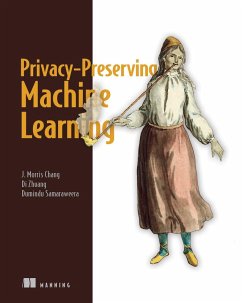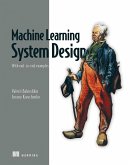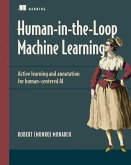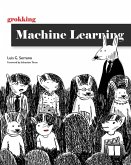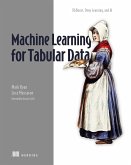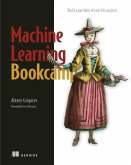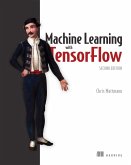Keep sensitive user data safe and secure without sacrificing the performance and accuracy of your machine learning models. In Privacy Preserving Machine Learning, you will learn:
- Privacy considerations in machine learning
- Differential privacy techniques for machine learning
- Privacy-preserving synthetic data generation
- Privacy-enhancing technologies for data mining and database applications
- Compressive privacy for machine learning
Privacy-Preserving Machine Learning is a comprehensive guide to avoiding data breaches in your machine learning projects. You'll get to grips with modern privacy-enhancing techniques such as differential privacy, compressive privacy, and synthetic data generation. Based on years of DARPA-funded cybersecurity research, ML engineers of all skill levels will benefit from incorporating these privacy-preserving practices into their model development. By the time you're done reading, you'll be able to create machine learning systems that preserve user privacy without sacrificing data quality and model performance. About the Technology Machine learning applications need massive amounts of data. It's up to you to keep the sensitive information in those data sets private and secure. Privacy preservation happens at every point in the ML process, from data collection and ingestion to model development and deployment. This practical book teaches you the skills you'll need to secure your data pipelines end to end. About the Book Privacy-Preserving Machine Learning explores privacy preservation techniques through real-world use cases in facial recognition, cloud data storage, and more. You'll learn about practical implementations you can deploy now, future privacy challenges, and how to adapt existing technologies to your needs. Your new skills build towards a complete security data platform project you'll develop in the final chapter. What's Inside
- Differential and compressive privacy techniques
- Privacy for frequency or mean estimation, naive Bayes classifier, and deep learning
- Privacy-preserving synthetic data generation
- Enhanced privacy for data mining and database applications
About the Reader For machine learning engineers and developers. Examples in Python and Java. About the Author J. Morris Chang is a professor at the University of South Florida. His research projects have been funded by DARPA and the DoD. Di Zhuang is a security engineer at Snap Inc. Dumindu Samaraweera is an assistant research professor at the University of South Florida. The technical editor for this book, Wilko Henecka, is a senior software engineer at Ambiata where he builds privacy-preserving software. Table of Contents PART 1 - BASICS OF PRIVACY-PRESERVING MACHINE LEARNING WITH DIFFERENTIAL PRIVACY 1 Privacy considerations in machine learning 2 Differential privacy for machine learning 3 Advanced concepts of differential privacy for machine learning PART 2 - LOCAL DIFFERENTIAL PRIVACY AND SYNTHETIC DATA GENERATION 4 Local differential privacy for machine learning 5 Advanced LDP mechanisms for machine learning 6 Privacy-preserving synthetic data generation PART 3 - BUILDING PRIVACY-ASSURED MACHINE LEARNING APPLICATIONS 7 Privacy-preserving data mining techniques 8 Privacy-preserving data management and operations 9 Compressive privacy for machine learning 10 Putting it all together: Designing a privacy-enhanced platform (DataHub)
Dieser Download kann aus rechtlichen Gründen nur mit Rechnungsadresse in A, B, BG, CY, CZ, D, DK, EW, E, FIN, F, GR, HR, H, I, LT, L, LR, M, NL, PL, P, R, S, SLO, SK ausgeliefert werden.

